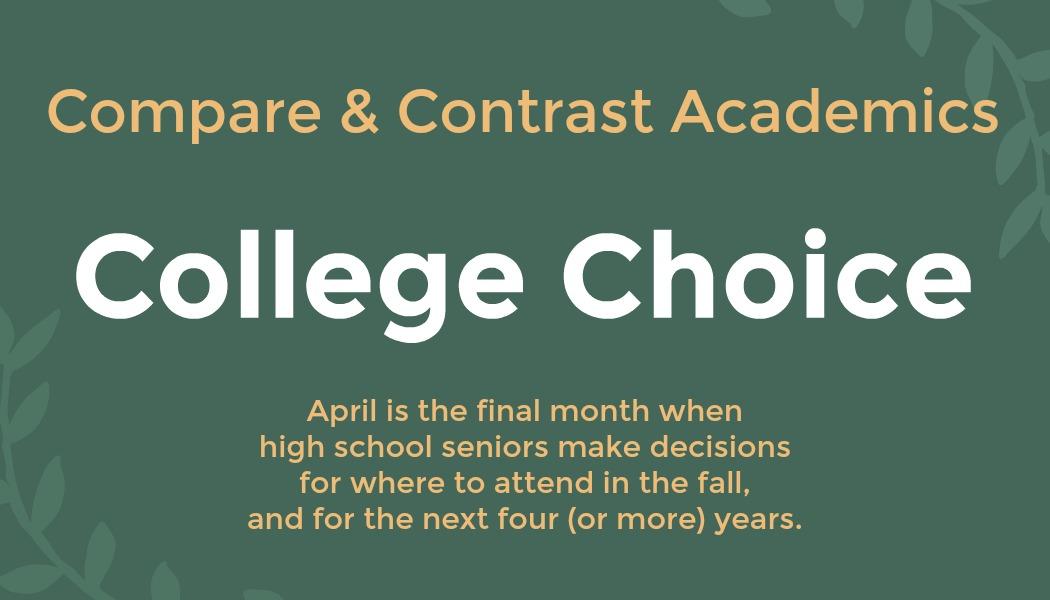First – congratulations! You applied and are now admitted to college!
As the May 1st enrollment deadline looms, our monthly RoundUp theme focuses on the big decision of choosing a college.
Weekly digest of information and resources for college applications, education success and financial aid.
Follow the included links to find articles to learn more.

Closely research academic programs
While reviewing admissions decisions to choose your college – compare and contrast the same major or program of study at different universities.
Click here for 9 questions to direct research on similar majors.

Tip Tuesday
Preview Professors
As you compare college campus options, previewing potential professors can help with your college choice.
Relationships with professors are valuable. In addition to lectures and exams, professors can be important resources. Networking with professors can lead to mentorship, letters of recommendation, research opportunities, and possibly career connections.
Click here for 8 tips to preview professors.

QUESTION: What is student-faculty ratio and why does it matter?
ANSWER: Student–faculty ratio is the number of students who attend a university divided by the number of faculty (teachers/professors) in the institution. For example, a student–faculty ratio of 10:1 indicates that there are 10 students for every one professor.
Student–faculty ratio is one measure to gauge access to professors. However, when researching colleges, it is important to also consider a complimentary measure – class size.
Learn more about student-faculty ratio & class size.

Impacted
When a course, program or campus receives more eligible applicants during the initial application filing period than can be accommodated.
A factor in deciding at which college you choose to enroll.
You may find that a campus or undergraduate major you’re considering is “impacted.” Specific courses can also be impacted, this affects course availability – in worst case, students can miss opportunities to take preferred or required courses and this could cause changes to planned schedules or graduation delays.
Read more at CSU about impaction

MYTH: Scheduling your college courses is as simple as selecting classes that fit your weekly availability and earn you credits.
FACT: Registering for classes can be a complicated process that needs advance attention and long-term planning.
Students who are still deciding between campuses can use this enrollment planning list to compare and contrast college-specific information at different potential campuses. This is an opportunity for students to explore the breadth, depth and access of offerings across the university and in specific departments. Access to different areas of study can allow students exposure to the perspectives of multiple disciplines.
Start by reviewing your college General Catalog. Explore and learn about: General Education (GE) and major requirements, first-year requirements, course offerings, orientation, prerequisites, permissions, waitlists, holds, advising, enrollment practices, and more. Click here to review all the tasks for undergraduate students to prepare for first term class registration.
Here are 8 more times from Big Future


Extra credit:
Waitlist
A waitlist is a list that students can join and wait for open seats in a class. If it is turned on by the department, and all the seats in a class have been filled, students can join the waitlist. If a student in the class drops it, a seat opens up and is filled by a student on the list.
Prerequisite
Prerequisite – A class that must be taken before you can take a different class. (For example, Astronomy 100 may be a prerequisite for Astronomy 200.)
Myth: The only way to know a course has a prerequisite is to try to add a class and see if you get an error message.
Fact: You should check the prerequisite in the online catalog course description for any course you are considering.




